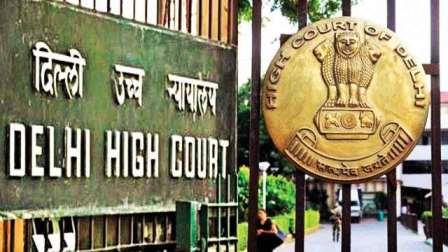New Delhi: Acting on a plea challenging certain provisions of the Right to Education Act, 2009, the Delhi High Court sought the Centre’s response on Tuesday. The Centre has allegedly been arbitrary and irrational and seeking the introduction of a common syllabus and curriculum for children across the country.
A bench comprising Chief Justice DN Patel and Justice Jyoti Singh handed notices to the Union ministries of Education, Law and Justice and Home Affairs on the petition and listed the matter for further hearing on March 30, reported news agency PTI.
According to the PIL, the existence of Sections 1 (4) and 1 (5) of the RTE Act and the absence of a common curriculum in the mother language leads to the fostering and perpetuation of ignorance and delays the attainment of fundamental duties.
It is the duty of the Union to effectuate a common education system but has failed in fulfilling this necessary obligation as it has simply adopted the very old pre-existing National Curriculum Framework (NCF) of 2005, said petitioner advocate Ashwini Upadhyay.
“The injury caused to children is extremely large because rather than implementing a common education system for all the children up to 14 years…the Centre inserted sections 1(4) and 1(5) to deprive educational excellence to madrasas, vedic pathshalas and educational institutions imparting religious instruction.
“The Petitioner submits that Sections 1(4) and 1(5) not only offend Articles 14, 15, 16, 21, 21A but are also contrary to Articles 38, 39 and 46 and Preamble,” said the plea.
“Subject to the provisions of articles 29 and 30 of the Constitution, the provisions of this Act shall apply to conferment of rights on children to free and compulsory education. Section 1 (5) of the Act states “Nothing contained in this Act shall apply to Madrasas, Vedic Pathsalas and educational institutions primarily imparting religious instruction,” states Section 1(4) of the RTE Act.
According to the plea, the prevailing system does not grant equal opportunity to all children as the syllabus and curriculum vary for each strata of the society. “It is necessary to state that the purposive and harmonious construction of Articles 14, 15, 16, 21, 21A with Articles 38, 39, 46 confirms that education is a basic right of every child and the State cannot discriminate against this most important right…
“Right of a child should not be restricted only to free education, but must be extended to have equal quality education without discrimination on the ground of child’s social economic and cultural background. Therefore, the court may declare Sections 1(4) and 1(5) arbitrary, irrational and violative of Articles 14, 15, 16 and 21 and direct the Centre to implement common syllabus and common curriculum for the students of I-VIII standard throughout the country,” the plea further said.
ALSO READ: Board Exams 2022: Supreme Court To Hear Plea Seeking Alternative Assessment


Comments are closed.